It is time to ditch the obsession with “a national democratic messiah”, according to Futurelect founder Lindiwe Mazibuko, who pointed out that by the time of the 2024 elections, South Africa’s constitutional democracy would be 30 years old.
And while electoral reform is key to moving away from political parties’ bizarre internal compilation of candidates’ lists, it is also important to regulate political parties.
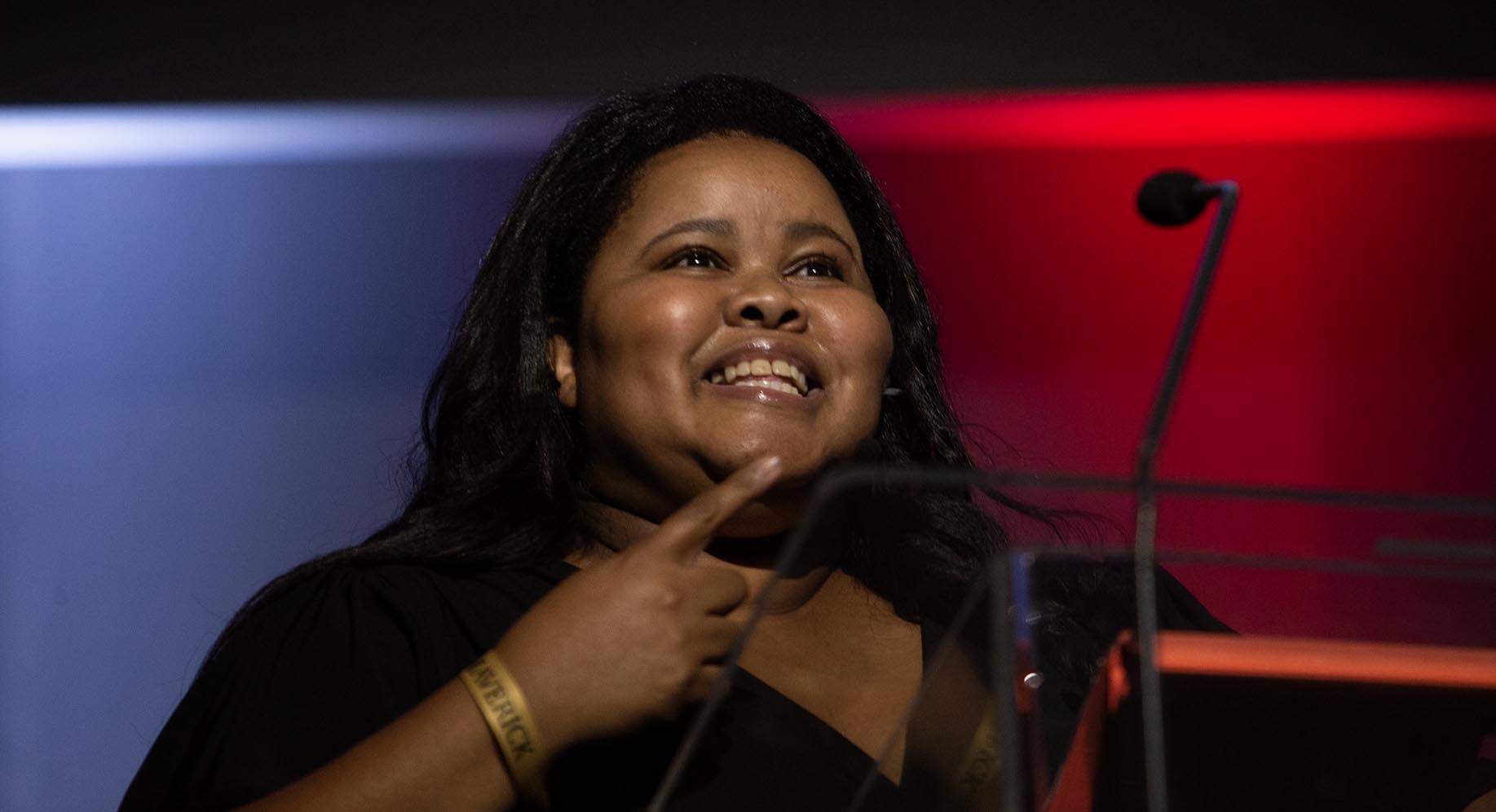 Former Democratic Alliance parliamentary leader Lindiwe Mazibuko at The Gathering in Cape Town on 24 November 2022. (Photo: Felix Dlangamandla)
Former Democratic Alliance parliamentary leader Lindiwe Mazibuko at The Gathering in Cape Town on 24 November 2022. (Photo: Felix Dlangamandla)
Speaking at Daily Maverick’s The Gathering 2022, Mazibuko said credit checks and police clearances were requirements for mid-level managers, but not elected public representatives.
“How many people holding seats in Parliament would lose their seats if they did not even pass one of these requirements?”
And as South Africa better regulated political parties, the country’s maturing democracy needed to also improve participation.
“Active citizenship is not a buzzword. We can reclaim power as citizens. We can reclaim it from the vested system dominated by political parties.”
Citizen-focused expression
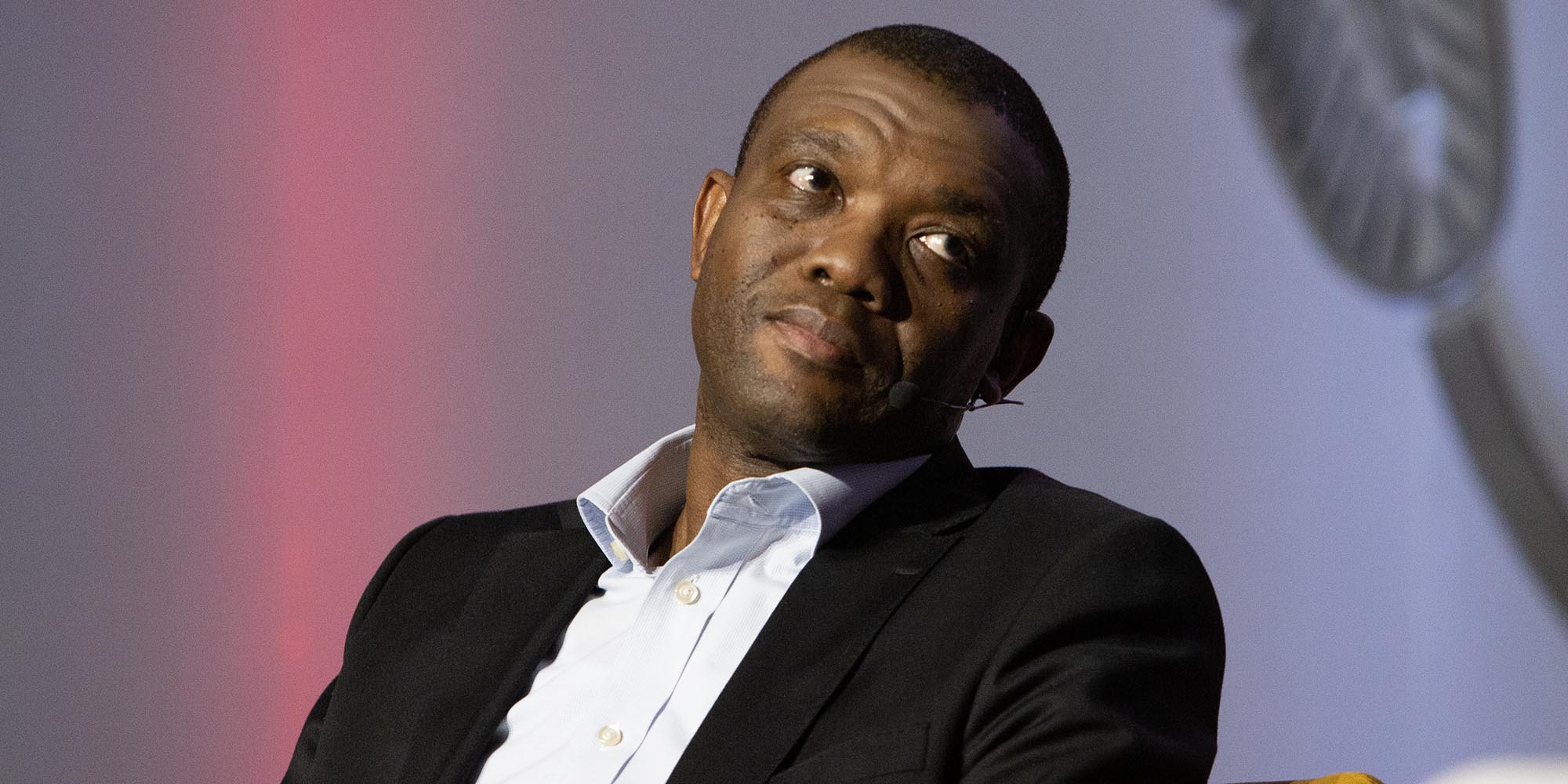 Rivonia Circle chairperson Songezo Zibi at The Gathering in Cape Town. (Photo: Felix Dlangamandla)
Rivonia Circle chairperson Songezo Zibi at The Gathering in Cape Town. (Photo: Felix Dlangamandla)
Such citizen-focused expression of social and political issues, rather than elite power plays, also emerged as key for Rivonia Circle chairperson Songezo Zibi.
While changing the electoral system was important, changing the balance of power between Parliament and the executive was equally so.
Currently, the bias was towards the executive and an imperial Presidency, which held much power, including the appointment of the prosecutions and tax authority bosses and directors-general.
“That’s why [Tourism Minister] Lindiwe Sisulu doesn’t go to Parliament and nothing will happen to her,” said Zibi in reference to a spat between the minister and the parliamentary tourism committee that had summonsed her after several non-appearances.
A less powerful President and a better representative Parliament, that could hold politicians to account, were needed as a real link between improved education and measures to resolve the unemployment crisis.
Like Mazibuko, Zibi talked of the naivety of thinking a single person would be able to turn matters around. President Cyril Ramaphosa, widely tipped as leading the 22 December elective contest for the presidency of the ANC, was just a reflection of the party he led.
“South Africans really need to move past the ANC,” said Zibi, pointing out that 28 million of 40 million eligible voters had not cast their ballots in the previous elections.
Visit Daily Maverick’s home page for more news, analysis and investigations
That not only spoke to how the obsession with leaders and conferences had turned people away, said Zibi, but also the lack of impact of other opposition political parties as a voting choice.
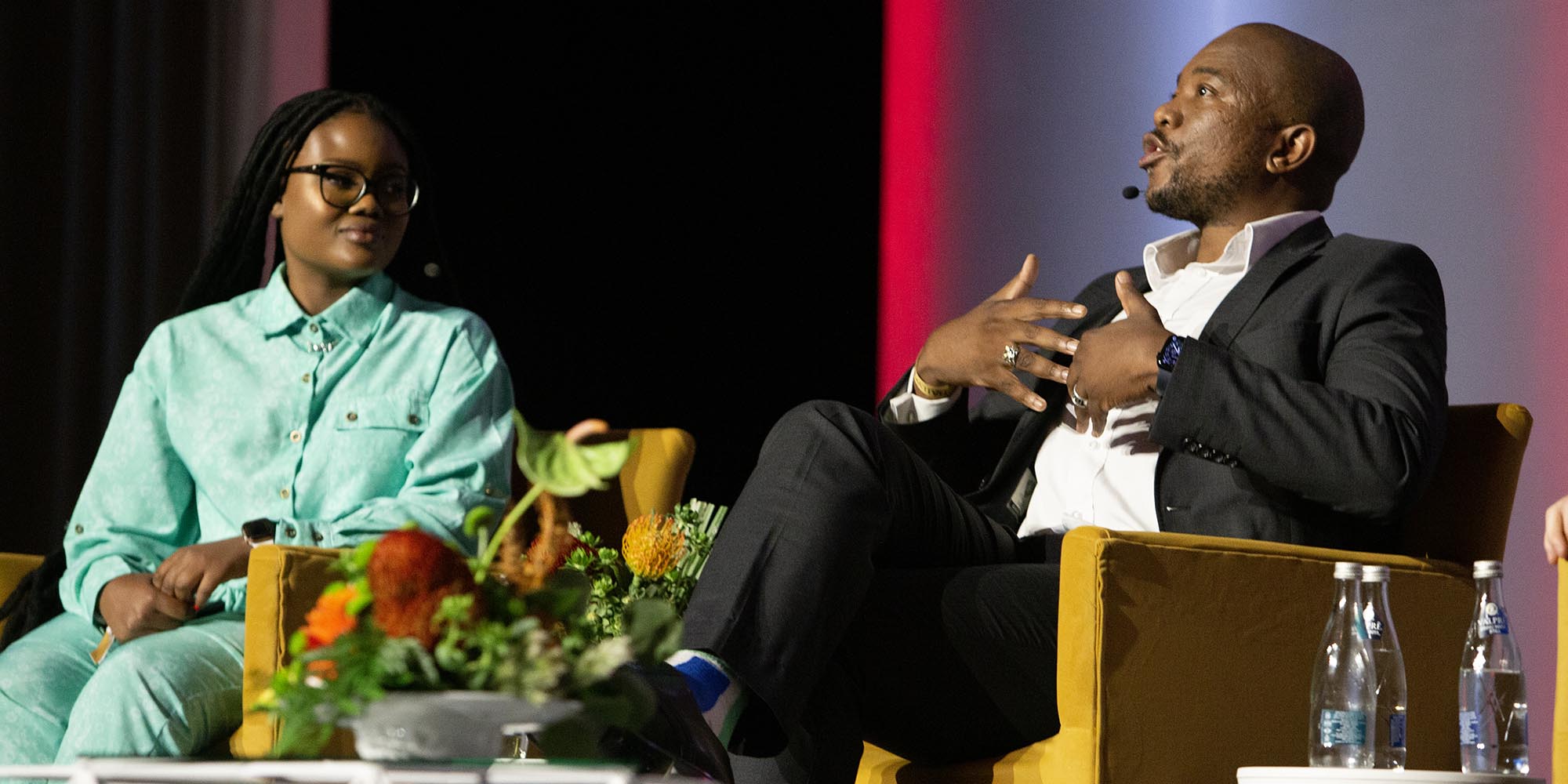 From left: Daily Maverick journalist Queenin Masuabi and Leader of Build One South Africa Mmusi Maimane at The Gathering in Cape Town. (Photo: Felix Dlangamandla)
From left: Daily Maverick journalist Queenin Masuabi and Leader of Build One South Africa Mmusi Maimane at The Gathering in Cape Town. (Photo: Felix Dlangamandla)
Build One South Africa’s leader, Mmusi Maimane, said it was important to change how citizens thought about politics — political parties alone couldn’t fix the country. Electoral reform to bring about constituencies where elected public representatives directly served communities was key. As were coalitions.
Asked about how the fluctuations and no-confidence motions, particularly in Johannesburg, but also in Nelson Mandela Bay, triggered changes, Maimane said it was important to set out clear coalition plans that did not focus on political machinations.
“The instability of coalitions is not driven by mathematics. It’s driven by politicians who do not fear citizens.”
Yet public service, which he has been rediscovering since resigning as DA leader and leaving Parliament in 2019, is central to a new politics.
“Coalitions are part of the future and we have to practise how they work. Constituencies are important. We are in service of people rather than political parties.”
Aside from municipal coalitions, the discussions about a different mode of politics also touched on dysfunctional municipalities — and how these must be put under administration.
Centralised power failure
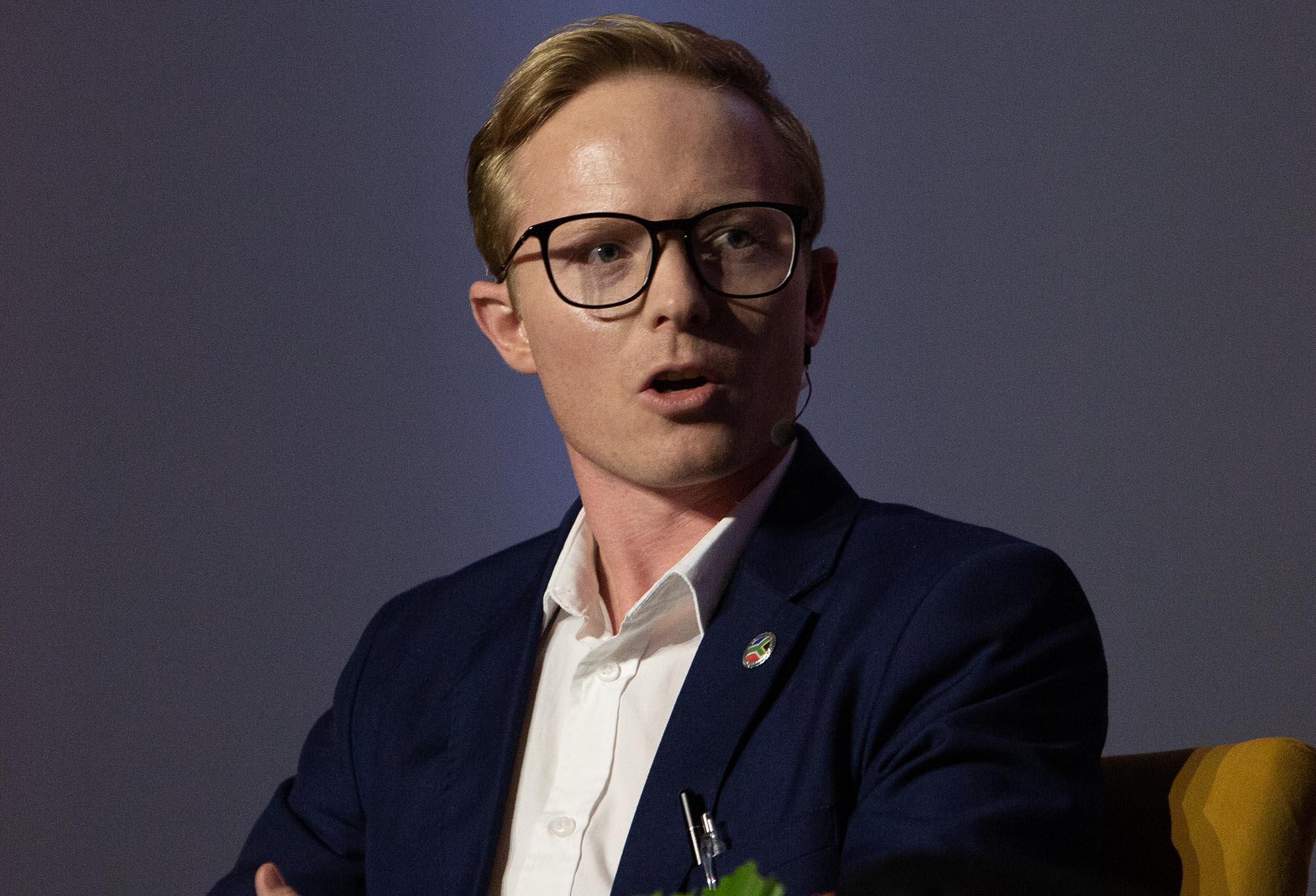 uMngeni Mayor Chris Pappas at The Gathering in Cape Town. (Photo: Felix Dlangamandla)
uMngeni Mayor Chris Pappas at The Gathering in Cape Town. (Photo: Felix Dlangamandla)
uMngeni’s DA mayor Chris Pappas, one of the youngest top municipal politicians, whose job specs since the November 2021 municipal polls have included fixing potholes and working at a landfill site, said the government’s district development model was little more than another layer to centralise power.
This model did not have any funding attached to it; already, coordinating structures like mayors’ forums and joint municipal forums existed.
“The system of local government has been designed to stop things getting done. It’s become very hard because of red tape.”
What’s needed is decentralisation — and “more politicians who are able to technically understand the stuff officials are feeding us”.
That interrogation of what public service staff are telling councillors was important, as often officials would tell politicians that what they wanted to do was not possible or illegal. Yet, not enough politicians asked: Why?
“You have to crucially engage with the laws, the policies. If they don’t work, change them. I don’t think enough politicians do so,” said Pappas, adding that politicians needed to be “actively engaged not only on oversight but also in communities”.
Social issues were key to changing politics, said Zibi: “The Rivonia Circle [looks to] redefine what politics is, [to] ensure people find their voices and make that matter at the ballot box.” DM




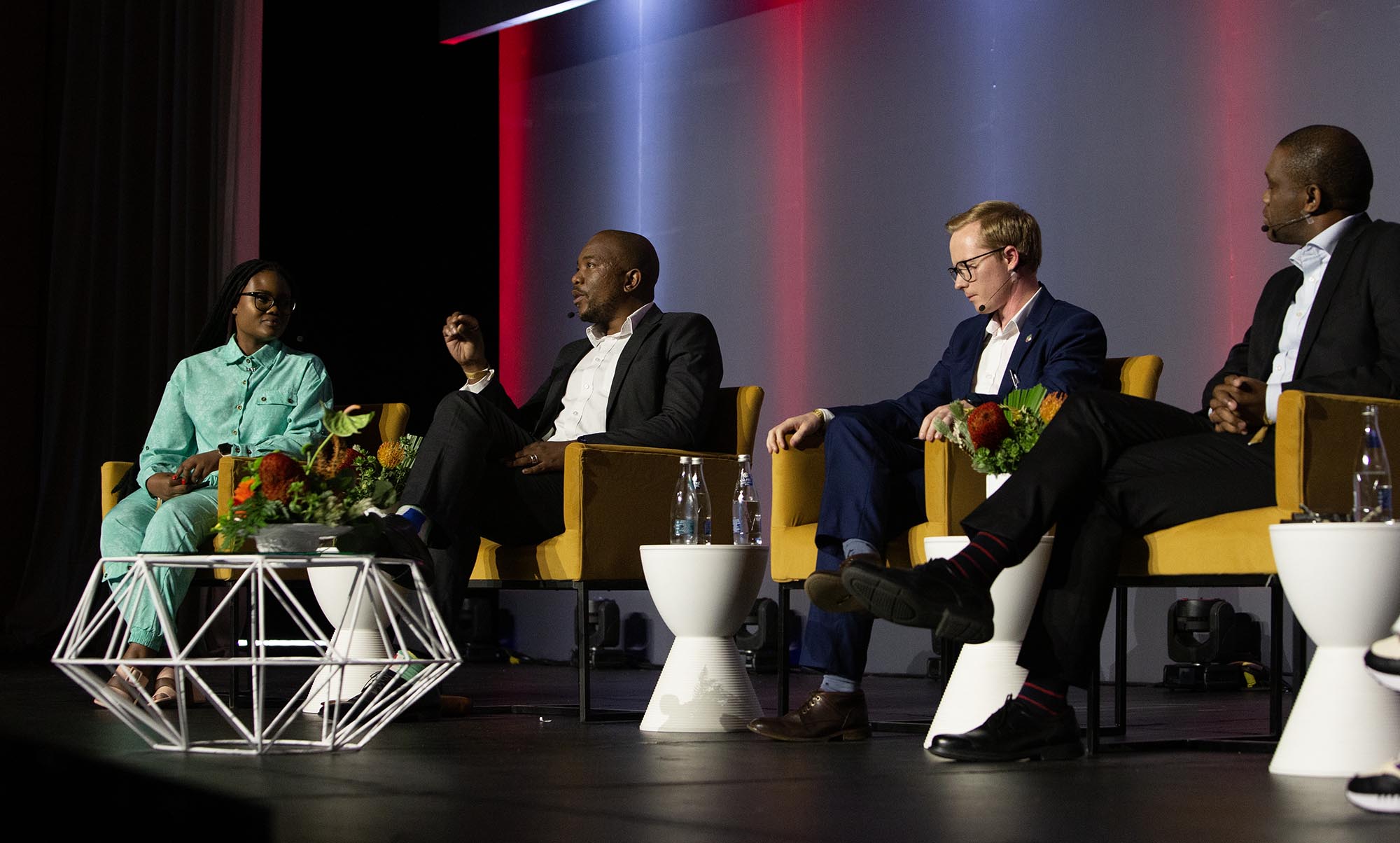 uMngeni Mayor Chris Pappas at The Gathering in Cape Town, 24 November 2022. (Photo: Felix Dlangamandla)
uMngeni Mayor Chris Pappas at The Gathering in Cape Town, 24 November 2022. (Photo: Felix Dlangamandla) 